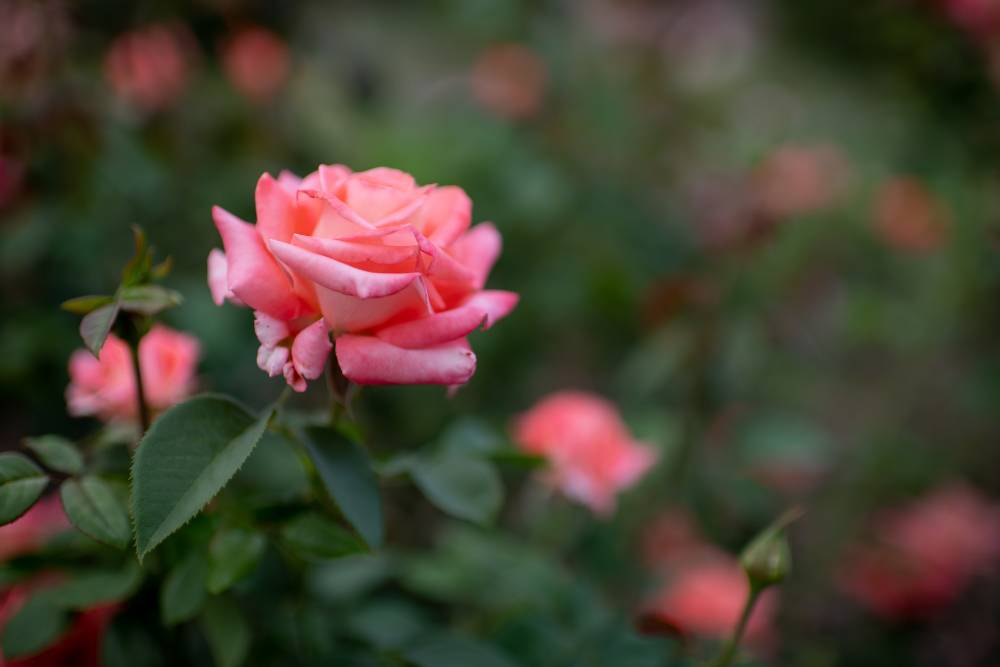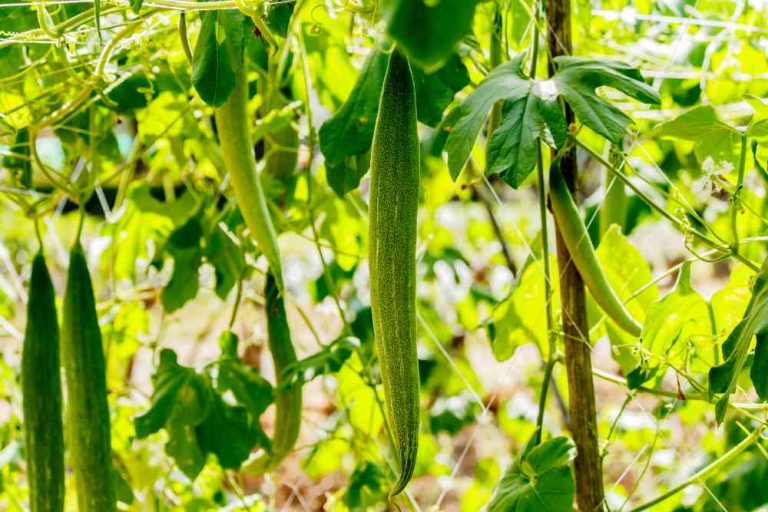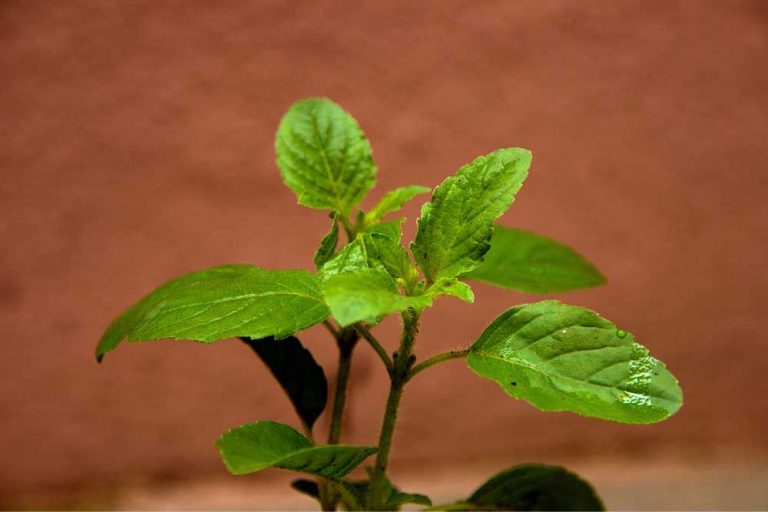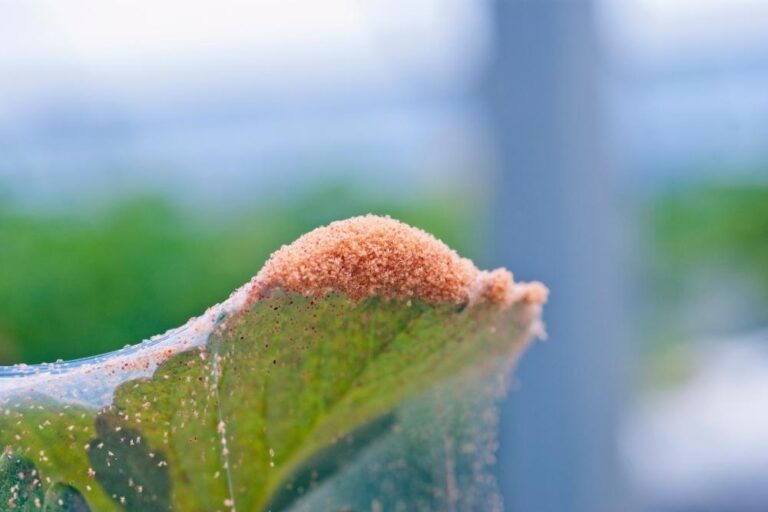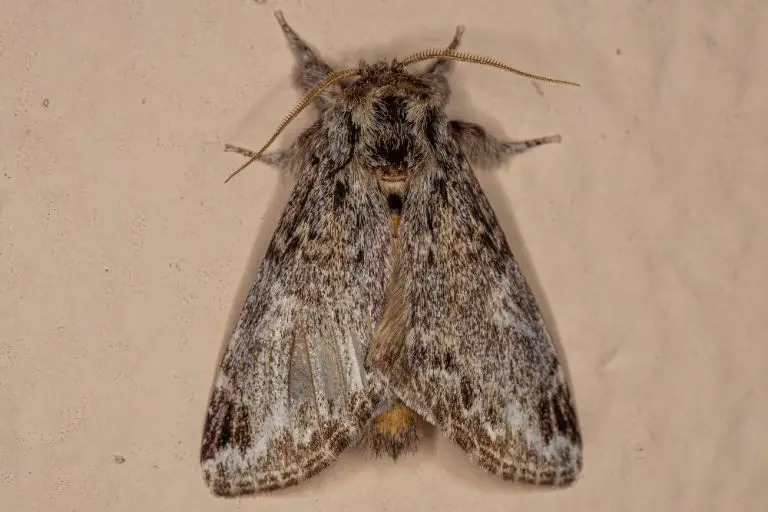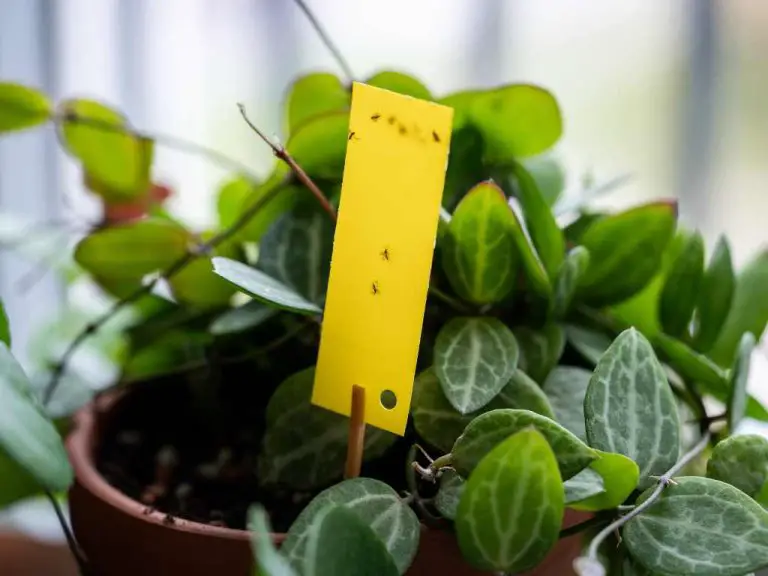8 Homemade Natural Insecticide For Roses: A Comprehensive Guide
One of the most often-used flowers worldwide is the rose. What else distinguishes roses from other flowers except for their gorgeous colors and shapes? There are around 200 varieties. Roses come in many shapes and sizes, with or without a delectable perfume. They can survive indoors and outdoors; while some prefer warm temperatures, others perform well in the cold.
Insects can rapidly destroy your lovely rose shrub. Unfortunately, a lot of commercial pesticides have the potential to be harmful to both humans and animals, as well as the environment. You can use natural insecticides to manage pests on your roses as an alternative to toxic chemicals. Let’s discuss 8 homemade natural insecticide for roses
Why Choose Organic Pest Control For Roses?
Before discussing the pests specifically, it’s crucial to comprehend why the type of pest management you employ is so significant for the general health of your garden. Yes, rose bugs are a popular complaint among rose gardeners, but with pollinator populations declining, we must choose organic rose pest remedies over synthetic poisons that could harm other creatures.
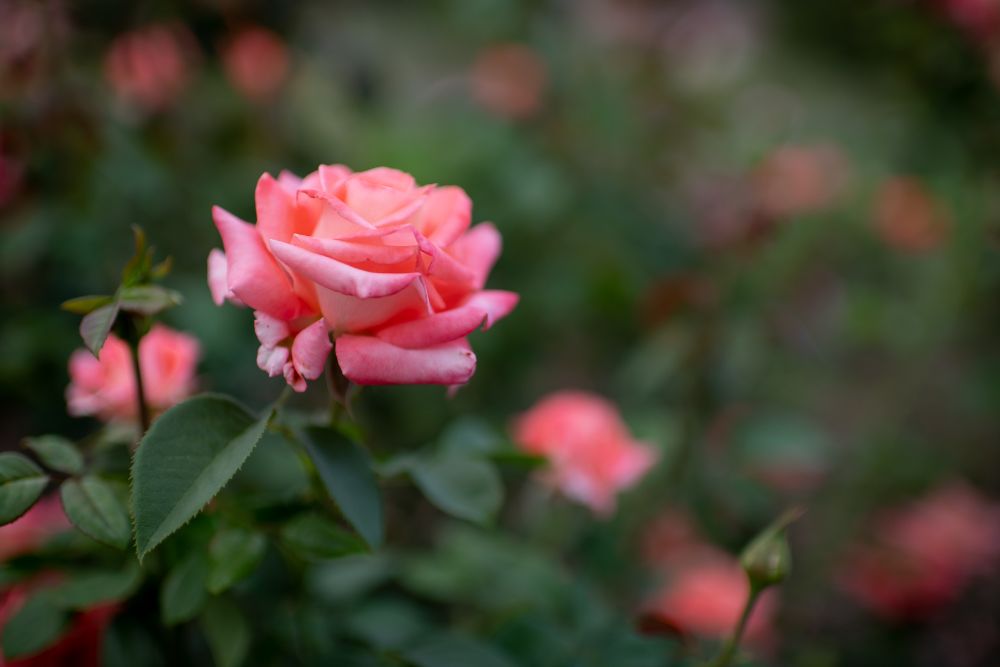
Granular systemic insecticides are widely used to control the pests of roses. They are dusted on the soil around the plant’s base. They move up into the plant’s foliage after being absorbed through the roots. The active chemicals in these treatments penetrate your rose plant’s vascular tissue and destroy pests that nibble on the leaves. Since systemic products are convenient and long-lasting, this may initially appear to be a favorable thing. But eventually, systemic poisons get into the plant’s pollen and nectar, damaging the pollinating insects that visit the blooms.
Natural Insecticides For Roses DIY
1. Soap-Oil Spray
One teaspoon of dish soap or baby shampoo, one teaspoon of vegetable oil, and one cup of water can be combined and properly blended to create a spray that will kill aphids, lace bugs, mealybugs, scales, spider mites, thrips, and whiteflies. Alternatively, two tablespoons of oil, one tablespoon of soap, and one tablespoon of shampoo can be added to one gallon of water.
Repeat applications every five to seven days are usually necessary to ensure complete coverage on all stems and both leaf surfaces. The spray is removed after a few hours on the plant to prevent the rose plant from being burned. Testing a spray on a small portion of the plant and examining that area for a few days to ensure it will not hurt the rose.
2. Citrus Spray
A simple citrus spray can destroy aphids and other soft-bodied insects. One lemon’s rind should be grated and added to freshly boiled water in a pint. The mixture should soak for the entire next day before being strained via cheesecloth or a fine sieve.
Apply the mixture evenly to the tops and bottoms of the leaves of the affected plants by applying the mixture to a spray bottle. The insects must come into contact with this mixture to be effective.
3. Pepper Spray
It could be possible to deter insect pests with a weekly application of a potent pepper spray around plants. Six drops of dish soap are added to a gallon of water and two tablespoons of red pepper. This mixture must be allowed to settle for at least one night to allow as much of the pepper to dissolve as possible.
It is then filtered before spraying into a sprayer and used to protect sensitive plants like rose bushes. The risk of plant damage can be reduced by trying a pepper repellent on a small area of foliage first to ensure it won’t harm the plant before applying it heavily to a rose.
Homemade Rose Spray For Aphids
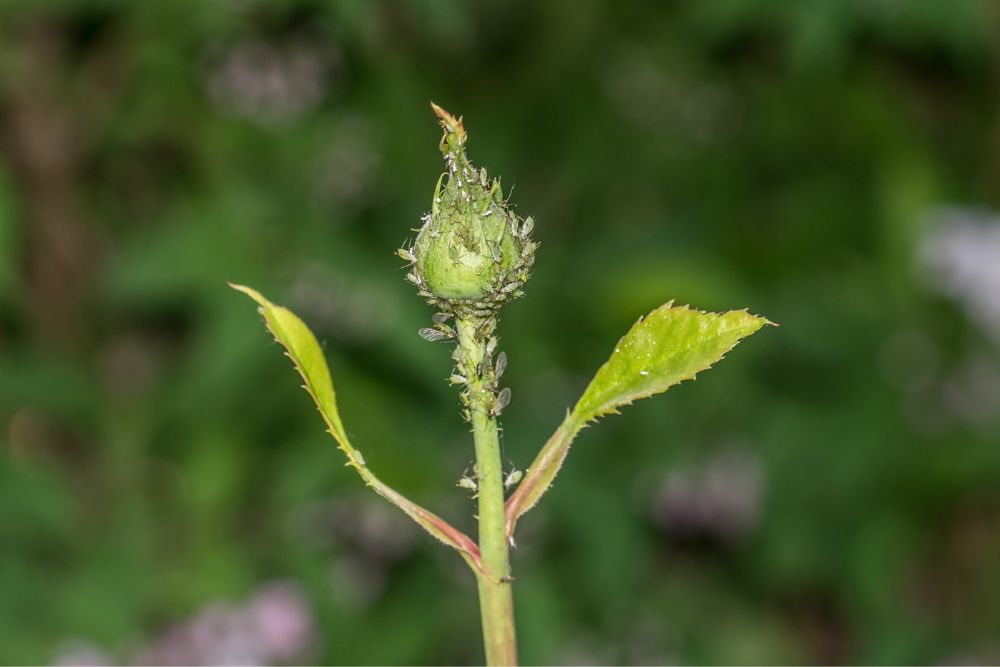
1. Neem Oil Spray
A natural insecticide that works well on rose aphids is neem oil spray. It functions by smothering the aphids and preventing them from feeding and reproducing.
Combine 1 ounce of neem oil in a spray container with 1 quart of water. Follow the manufacturer’s recommendations when combining a spray adjuvant with neem oil and water. To thoroughly blend the contents, shake the bottle vigorously. Spray the mixture on the rose plant’s stems, buds, and affected leaves. Aphids frequently conceal themselves on the underside of leaves, so be sure to target them. To get rid of the aphids, apply again every few days.
2. Tobacco Spray
Home remedies for aphid control on roses include the use of tobacco spray. The main ingredient in tobacco, nicotine, has insecticidal qualities and can be hazardous to aphids.
One quart of water should be used to steep one cup of fresh tobacco leaves or tobacco for cigarettes for 24 hours. Remove any particles from the mixture by straining. A spray container should be filled with the tobacco infusion. The damaged rose plant’s stems, buds, and leaves should be sprayed with tobacco. Aphids frequently conceal themselves on the underside of leaves, so be sure to target them. Until the aphids are gone, apply again every few days.
3. Orange Oil
Natural insecticides, fungicides, herbicides, and repellents include orange oil. Orange oil is available at most garden supply stores and internet vendors. You should add approximately one tablespoon of orange oil per gallon of water. Use little less than half a teaspoon of the orange oil and a 16-ounce spray bottle filled with water to combine it if you’re using a 16-ounce spray bottle and prefer to do it that way rather than in a larger container.
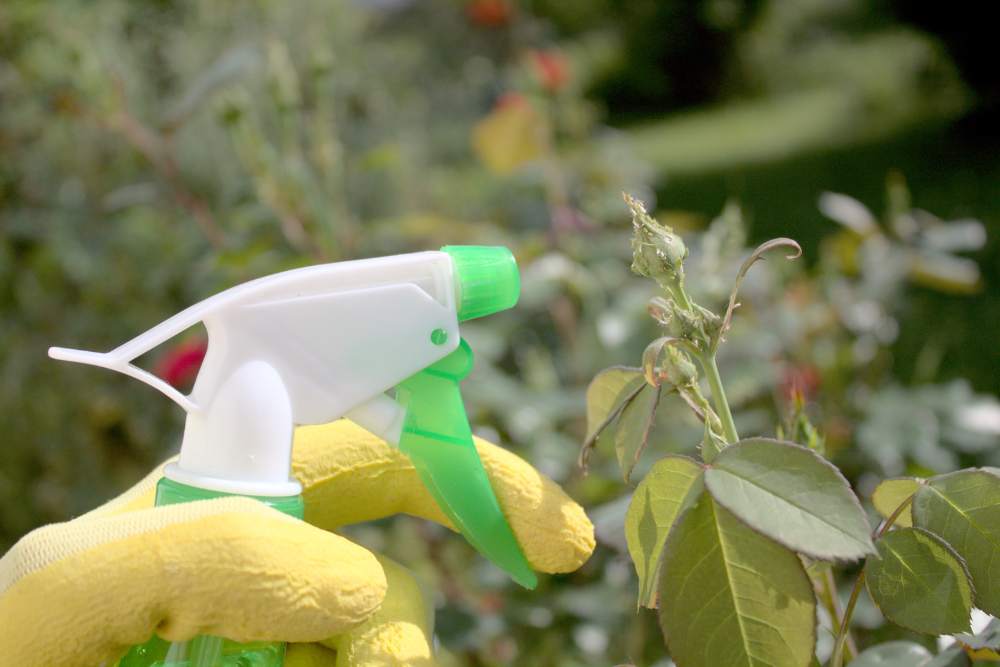
4. Vinegar Spray
Common pests called aphids can harm plants and lower food output. Making and applying a vinegar spray is one way of aphid management.
In a spray bottle, combine one part vinegar with three parts water. Add 2–5 ml of dish soap to make the mixture adhere to the plant leaves. Shake the ingredients together thoroughly. Directly apply the mixture to the aphids and the plant leaves where they are present. Once the aphids are under control, use them again every 3 to 5 days.
5. Garlic Spray Making
To manage aphids on roses, a garlic spray may be an efficient home cure. Garlic contains natural insecticidal and aphid-repelling capabilities. 5 to 6 cloves should be peeled and blended in a quart of water. Remove any particles from the mixture by straining. Put a spray bottle with the garlic infusion inside. The afflicted stems, buds and leaves of the rose plant should be sprayed with garlic.
Aphids frequently conceal themselves on the underside of leaves, so be sure to target them. Till the aphids are gone, apply again every few days. Keep an eye on the plant; if you notice the aphids coming back, repeat the technique or use another management method.
- 29 Bucket Gardening Ideas for a Lush, Compact Garden - October 30, 2024
- 20+ Chic Boho Bedroom Ideas for a Cozy and Stylish Retreat - June 20, 2024
- 12+ Modern Boho Living Room Ideas to Create a Unique Oasis - June 10, 2024

